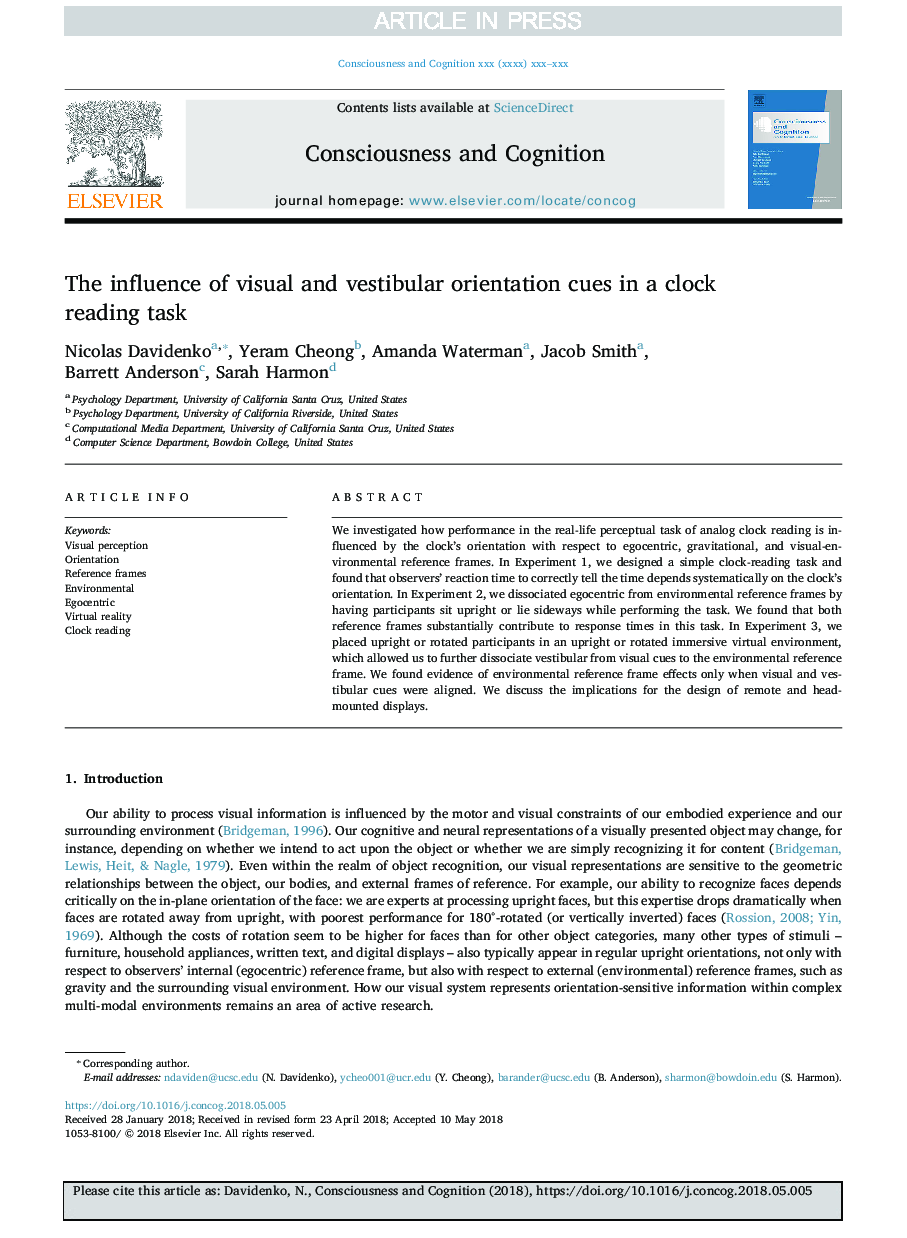| Article ID | Journal | Published Year | Pages | File Type |
|---|---|---|---|---|
| 10153451 | Consciousness and Cognition | 2018 | 11 Pages |
Abstract
We investigated how performance in the real-life perceptual task of analog clock reading is influenced by the clock's orientation with respect to egocentric, gravitational, and visual-environmental reference frames. In Experiment 1, we designed a simple clock-reading task and found that observers' reaction time to correctly tell the time depends systematically on the clock's orientation. In Experiment 2, we dissociated egocentric from environmental reference frames by having participants sit upright or lie sideways while performing the task. We found that both reference frames substantially contribute to response times in this task. In Experiment 3, we placed upright or rotated participants in an upright or rotated immersive virtual environment, which allowed us to further dissociate vestibular from visual cues to the environmental reference frame. We found evidence of environmental reference frame effects only when visual and vestibular cues were aligned. We discuss the implications for the design of remote and head-mounted displays.
Related Topics
Life Sciences
Neuroscience
Cognitive Neuroscience
Authors
Nicolas Davidenko, Yeram Cheong, Amanda Waterman, Jacob Smith, Barrett Anderson, Sarah Harmon,
